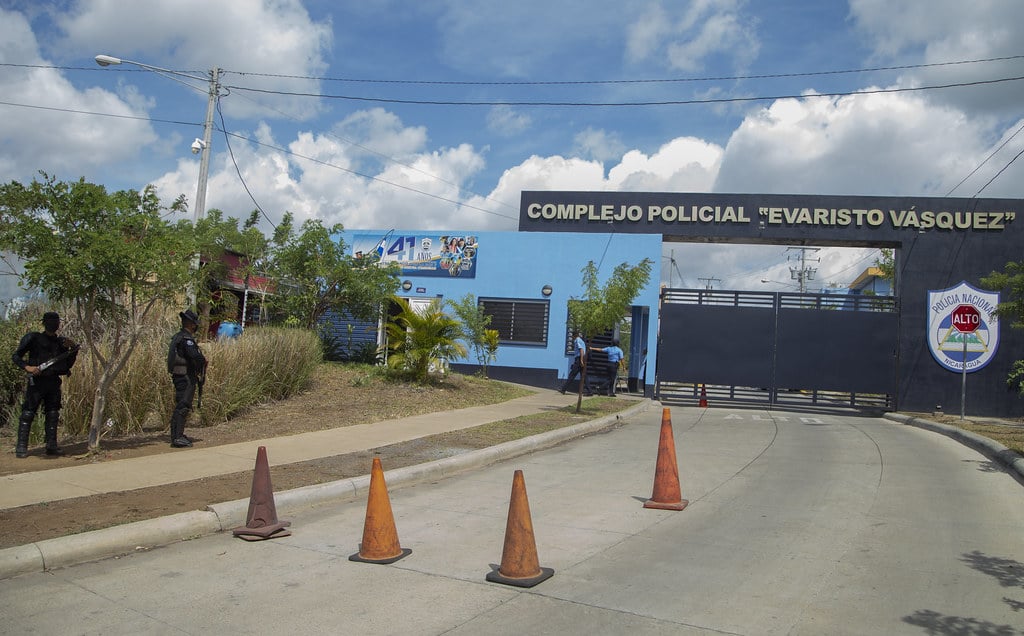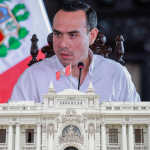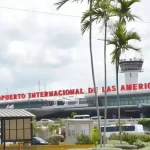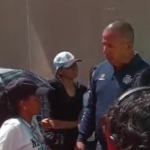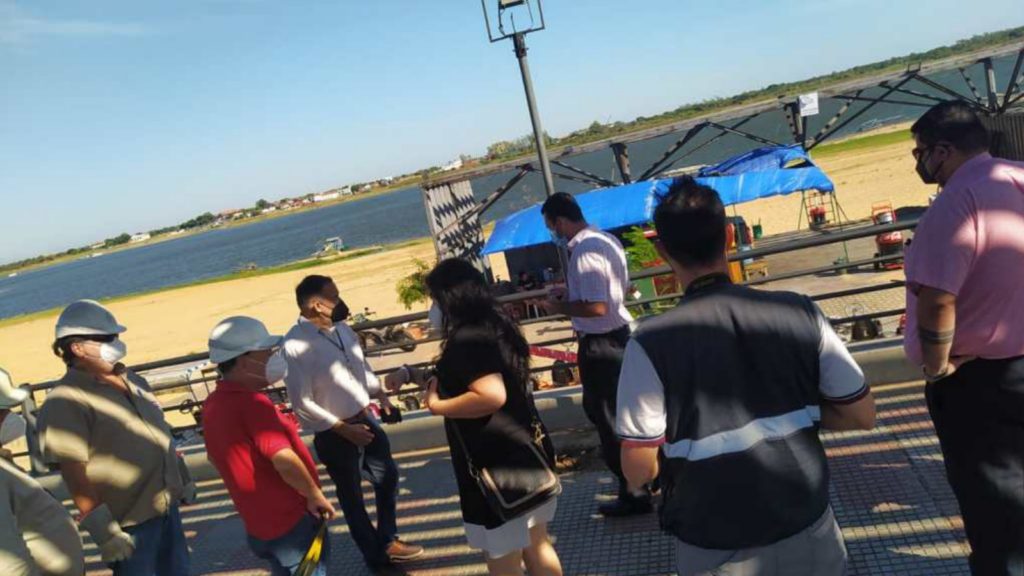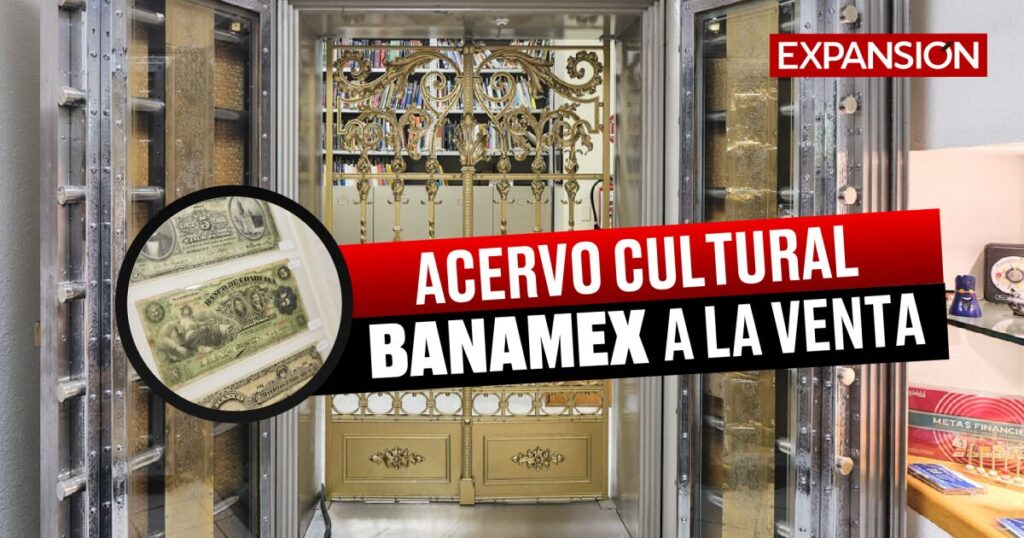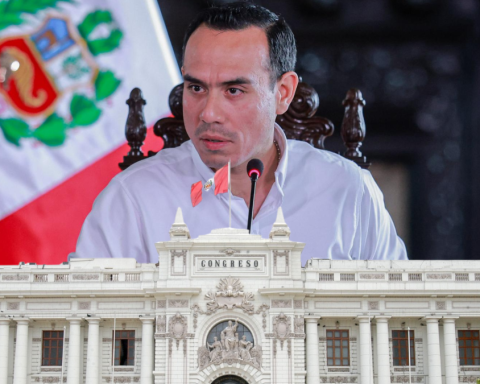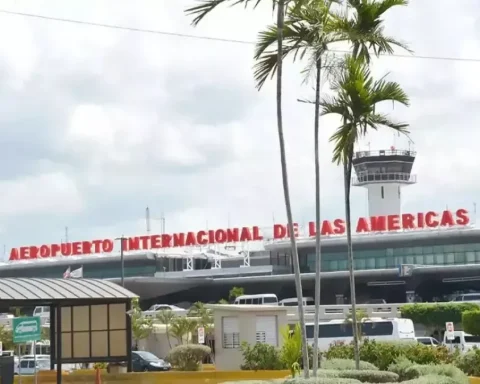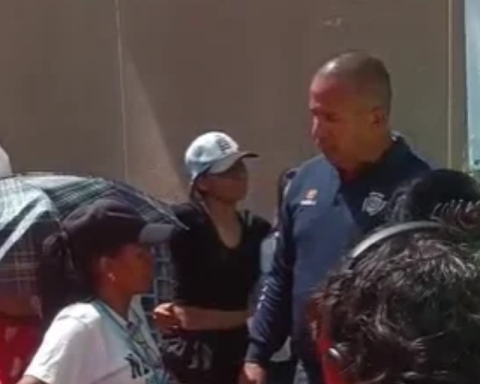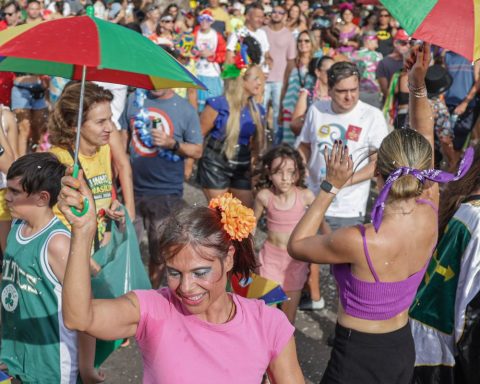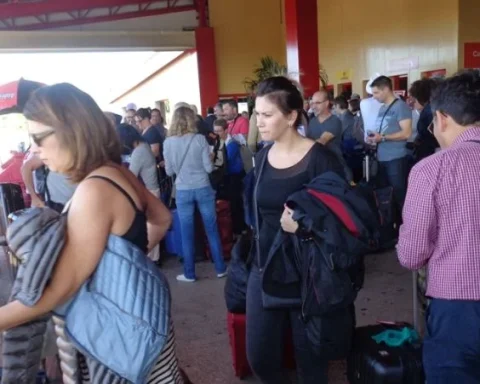Every night for the last two years, when former television presenter Berta Valle listens to her eight-year-old daughter cry, she shows her the videos that Félix Maradiaga, her husband, recorded for the girl. “Hello my love, how was school today? You already know that I am in Nicaragua, wanting to see you soon, to give you a hug, it will not be possible right now, we are going to be talking and it is important that you never forget that you are my number one.
Maradiaga’s voice is heard from the smartphone that Valle has in her hands, while she remembers the hard days of separation, which worsened when he was arrested on June 8, 2021 by the Police, after showing up for an appointment in the prosecution.
Valle cries during some moments of the interview. This Friday, January 28, he has just signed a letter with at least 46 relatives of political prisoners, who demand the immediate release of at least 170 people who are incarcerated for political reasons in Nicaragua, and the annulment of political trials. At least a quarter of them were arrested in the months prior to the presidential elections with which Ortega secured a fourth consecutive term.
Seven of these last detainees were presidential candidates like Maradiaga, but there are also social leaders, opposition politicians, business leaders, with whom the regime imposed silence based on terror and eliminated any possibility of competition in the process characterized by its irregularities, the control in the electoral structures of the governing party. The result of that political Frankenstein —the re-election of Ortega— was considered illegitimate by at least 25 countries of the American continent grouped in the OAS and 27 nations gathered in the European Union.
“We are victims, we want our relatives free,” cries Valle, who rejects the attempt to divide the relatives of political prisoners who, despite not sharing ideologies in some cases, do agree that immediate freedom without their conditions is urgent, because they were unfairly accused, but also because their conditions have deteriorated due to confinement.
Valley explained that the statement of January 25, initially signed by 27 relatives of prisoners of conscience—to which more signatures have been added until adding 72 and in which a former television presenter did not participate—the word “dialogue” is not used, but rather it is a call for different actors of society coordinate for the release of political prisoners.
At this point in the demand for freedom, they agree with the other families of prisoners who asked for immediate release, the annulment of the trials and the restoration of the freedoms of citizens.
Supporting the request of the first group of relatives, the Superior Council of Private Enterprise (Cosep) asked Ortega for a dialogue without “preconditions”, however, a union official accepted that until now there has been no rapprochement with the regime and that what there is is an intention in which they seek the release of the detainees—including several leaders of the private sector—and that they let them “work in peace”.
“We ask for all political prisoners. It is clearly an asymmetric negotiation. What really pisses us off are the political prisoners and their conditions. We are clear in what we prioritize”, said the business executive.
The United States does not see any sign of Ortega either to engage in alleged talks. This Friday, at noon, the spokeswoman and vice president Rosario Murillo did not refer anywhere in her monologue to the possibility of talks. Days ago he talked about what really interested them.
On January 19, Murillo invited cabinet meetings with local actors, which would be scheduled next week and in which they will discuss the national economic model, ignoring the request for the release of those arrested, as well as an end to the police state imposed since September 2018.
Murillo reported that this weekend 5,000 activities promoted by the dictatorship and the signing of an agreement with the People’s Republic of China, with which they recently reestablished relations, will be carried out for the construction of houses. However, he did not give details of the project.
A source linked to the cabinet led by Ortega and Murillo confided that at least in those instances, the reactivation of a dialogue has not been heard or discussed. “This is an issue that is handled at the highest level and at least in government matters, it has not been discussed,” he said briefly.
In the two previous dialogues, installed after the April 2018 crisis at different times, Ortega did not keep his promises and continued the repression to accumulate more power, while silencing critics.
The desperation of the relatives of the inmates
Karen is the sister of Eduard Lacayo, known as the “fierce wolf”, detained for almost three years under false accusations of drug trafficking, because he participated in anti-government protests in his city of Masaya. She is in exile and says she is desperate for the situation in which her relative may be, who suffers from diabetes and, like other prisoners, has lost weight.
“We support the dialogue, because it is a strategy that we have to do so that our political prisoners are released. The only way to get them out here is by talking to this killer. We have thought about it. There is nothing else, you see that the sanctions do nothing to him. They have not released our prisoners and the only ones who are holding out are our brothers and we, the relatives. We can’t find what to do, we are worried that something is going to happen to them”, explains Lacayo.
Valle also agrees on the concern for the health situation of political prisoners. She herself assures that her husband Maradiaga has lost 50 pounds. “We are facing a crisis situation where people’s lives must be saved and protected,” he said.
Since the regime intensified the repression last June, relatives have denounced the conditions of isolation to which the political prisoners were subjected by the regime, the torture they have been subjected to, as well as the denial of the right to defense, because a majority of them have not been allowed to meet with their lawyers and neither have they access to the files.
In the current circumstances, in which the regime has increased the repression against opponents, several relatives of political prisoners consulted by CONFIDENTIAL they preferred not to talk about their respective stories for fear of reprisals. “Every time we talk they can be attacked in prison, something can happen to them,” they said.
